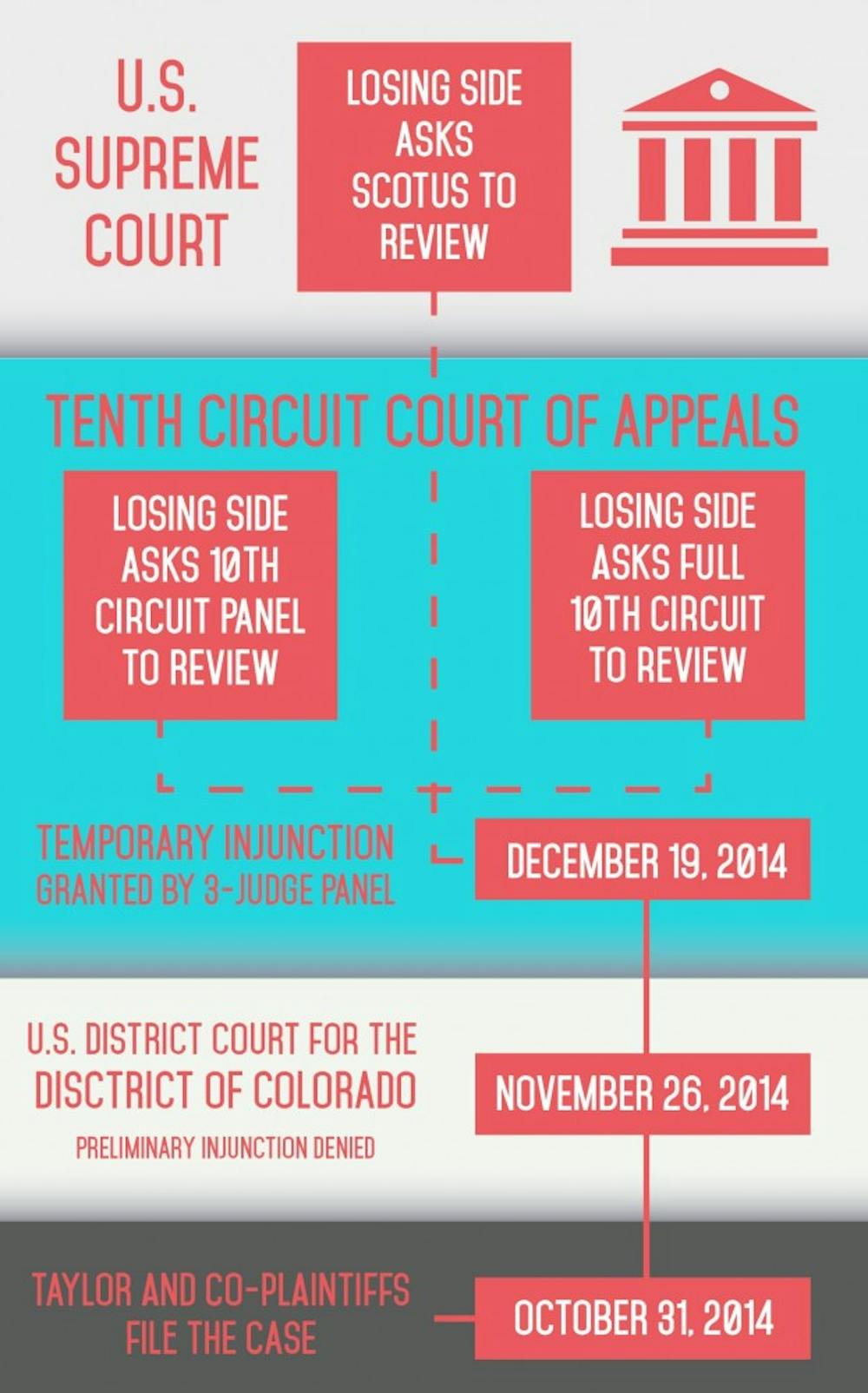By David Adams | Echo
Taylor awaits a decision from the U.S. Court of Appeals for the 10th Circuit in its lawsuit against the federal government. A decision is expected any time in the next few weeks to a few months, according to Alliance Defending Freedom (ADF) attorney Greg Baylor, who is representing Taylor and its co-plaintiffs in the case. (University officials declined to comment on the legal proceedings.)
The university and three other religious nonprofit organizations filed the lawsuit in October 2014 in the U.S. District Court for the District of Colorado. The organizations, since joined by the ADF itself and Asbury Theological Seminary, seek relief from the Affordable Care Act (ACA) mandate that employer health insurance plans pay for certain contraceptives the nonprofits consider abortifacients.
ACA established fines of $100 per day per affected employee if an employer fails to offer contraceptive coverage, according to Taylor's original complaint. Vice President for Business Administration Ron Sutherland said in November that this would total $30 million annually for Taylor.
In response to the organizations' initial complaint, U.S. District Judge Philip Brimmer denied their request for temporary relief on November 26, 2014, according to an order filed by the court.
Taylor and its co-plaintiffs appealed this decision to the 10th Circuit, and judges David Ebel and Terrence O'Brien granted them temporary relief from the ACA mandate on December 19.
The order required the plaintiffs to "inform the Secretary of Health and Human Services (HHS) in writing that they are non-profit organizations that hold themselves out as religious and have religious objections to providing coverage for contraceptive services," according to the filing.
After the organizations notified HHS, the government would be prohibited from enforcing the mandate pending further order from the 10th Circuit. Baylor said all six organizations notified HHS of their objections, preventing them from being subject to the fines.
Proceedings in the case are on hold until the 10th Circuit rules in three similar cases against the federal government. Baylor believes the outcome in these cases will likely determine how the court will rule in Taylor's case.
A three-judge panel of the 10th Circuit will decide the outcome of the university's lawsuit. Whether Taylor and its co-plaintiffs or the government loses, each side will have three options for appeal: They can ask the panel to review the case if they believe the judges made a mistake or if other cases with opposing outcomes are decided; they can ask the 10th Circuit to rule en banc, meaning the full court will review the case, or they can appeal to the Supreme Court. Neither the 10th Circuit nor the Supreme Court is required to hear the organizations' appeal.
No matter the outcome of Taylor's case, Baylor expects the Supreme Court will ultimately decide whether religious nonprofit organizations must pay for the contraceptives to which they object because so many cases are progressing through the courts.
More than 50 non-profit cases representing 140 plaintiffs, including 30 universities, have been filed across the country, according to the Becket Fund for Religious Liberty's count. Religious organizations have won injunctions against the government in 31 cases so far.
The Supreme Court has not yet agreed to hear any of these cases. On Monday the court nullified the Seventh Circuit's decision to deny the University of Notre Dame's request for relief from the mandate.
The Seventh Circuit will reconsider the case in light of the Supreme Court's June 2014 decision in Burwell v. Hobby Lobby Stores, Inc. In that case, the Supreme Court ruled 5-4 that the family-owned business was not subject to the mandate in light of its religious views.





